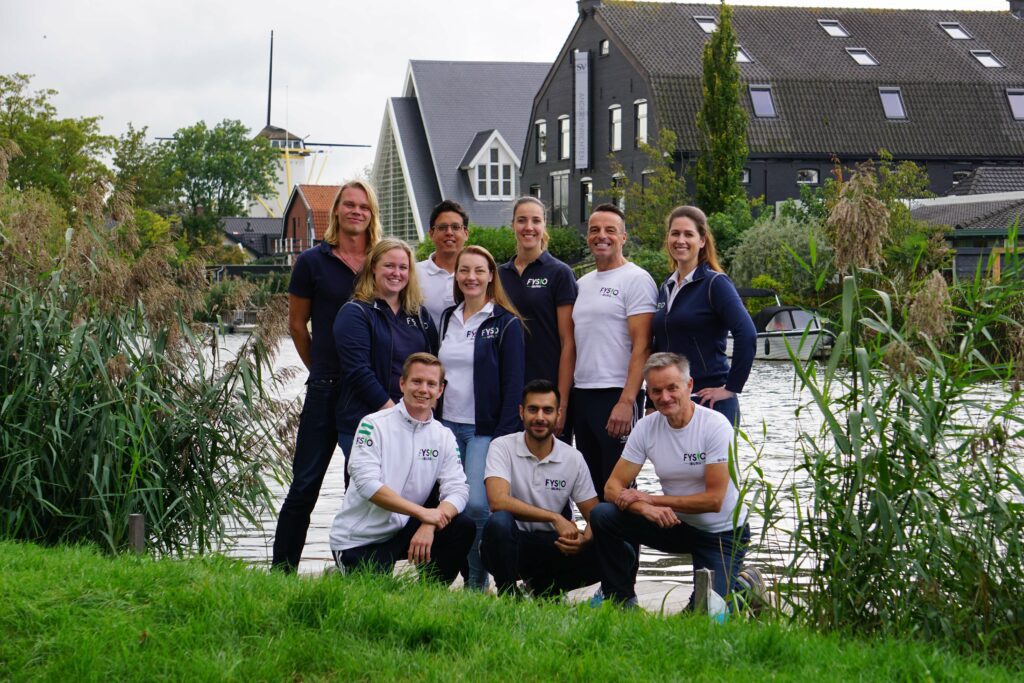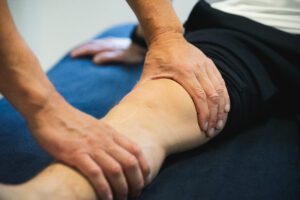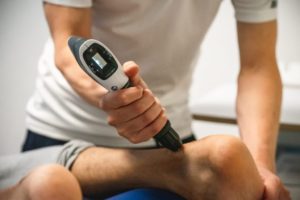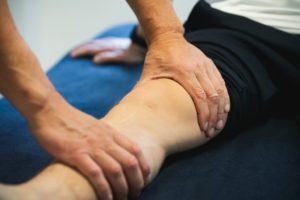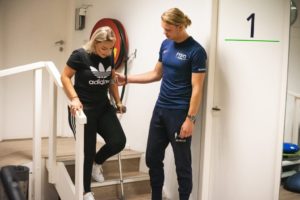What is knee bursitis?
A bursa is a fluid-filled sac near joints that acts as a kind of cushion between bones, tendons and muscles. The bursa helps reduce friction and ensures smooth movements. Knee bursitis occurs when the bursa becomes inflamed due to overuse, trauma, repetitive friction, or underlying medical conditions.
Symptoms of bursitis in the knee
If you have bursitis, you can expect the following symptoms:
- Pain: There is usually pain at the front of the knee, just above the kneecap. The pain can range from mild to severe and may become worse with movement or pressure on the area.
- Swelling: The bursitis can lead to swelling in the area around the kneecap. This can lead to a visible thickening and a feeling of tension in the knee area.
- Redness and warmth: Inflammation is often accompanied by redness and increased warmth in the affected area.
- Limited movement: The inflammation can limit the movement of the knee, especially when bending or extending. It may be painful to fully extend or bend the knee.
- Pain on pressure: Applying pressure to the bursa, such as when you lean on your knees or press on it, can be painful.
- Difficulty with activities: The pain and limitations in movement can make it difficult to perform normal activities, such as walking, climbing stairs or exercising.
Causes of bursitis in the knee
No matter how sudden a bursitis may feel, it often does not occur suddenly. Most causes of bursitis are:
- Overload: Repetitive strain or overuse of the knee, such as prolonged kneeling, squatting or climbing a lot of stairs, can irritate the bursa and cause inflammation.
- Infection: In rare cases, a bacterial or viral infection can affect the bursa in the knee and cause inflammation.
- Underlying conditions: Some medical conditions, such as rheumatoid arthritis, gout, or osteoarthritis, can increase the risk of bursitis.
- Wrong posture: Poor posture during activities can place disproportionate pressure on the knee and strain the bursa.
- Muscle weakness or imbalance: If the surrounding muscles do not function properly or if there is unbalanced muscle development, this can increase the burden on the bursa.
- Overweight: Excessive body weight can put strain on the knee joints and contribute to bursitis.
- Age: As people age, the risk of bursitis increases because the bursa wears away over time and becomes less resilient.
Take rest and recover
Bursitis can be quite uncomfortable and interfere with daily activities. Fortunately, there are steps you can take to aid recovery and provide relief.
The first thing you should do is get enough rest in your recovery process. Otherwise you may overstrain your knee and the pain will continue to worsen. Applying ice can reduce swelling. You can do this in a tea towel for 15-20 minutes several times a day. Elevation is also a good solution. Elevating your leg when sitting or lying down can help reduce swelling.
Professional help from a physio
With the right knowledge and approach, it is possible to reduce pain and discomfort and restore your mobility. Enabling one professional physio can help you with this. Together we can do exercises and you will receive the best advice for the days you are at home.

